Embracing Our Humanity as a Pathway to Equity:
Shifting from Traditional Problem-Solving Techniques to Human-Centered Care
with Dr. Chanel Beebe and Dr. Christena Cleveland
Do you have an equity problem, and you need help figuring out where to start?
Have you started an equity process but ran out of momentum and feel stuck?
Do you need skills for reimagining solutions and developing resilience in the midst of equity challenges?
Are you trapped in linear scientific thinking?
Have you been going around and around in the design process?
Solving social problems requires a human-centered approach that goes beyond typical design thinking and allows us to tap into our deeper vulnerabilities and strengths as individuals and collectives.
Breathing new life into the equity process and expanding our human and organizational capacity for growth and transformation
Most academic and corporate spaces value equity but take a linear and somewhat antagonistic, approach to the obstacles they encounter on their journey to equity. Often, our well-intentioned efforts toward equity require us to view inequity as yet another pesky problem to be solved, rather than a unique opportunity to develop a robust and sustainable community care process.
When we see equity as simply a problem, we are susceptible to numerous dehumanizing problem-solving fallacies such as hiring processes driven by tokenism, infinite nauseating meetings to talk about the problem, and a narrowly-focused equity pathway that paradoxically overlooks the human beings at the heart of our communities.
Join us as we breathe new, human-centered life into the equity process.
Our dynamic workshop bridges the gap between awareness and strategic action, and brings the human being back to the center of equity efforts. We will begin by recognizing and addressing systemic trauma and delve into the profound impact of inequity on individuals, exploring how it shapes our thoughts, emotions, and behaviors – even as we work together towards equity.
Through interactive activities, we will uncover why it is so difficult to foster trust and move effectively toward our equity goals. Specifically, we will examine the different experiences of agent groups, such as unawareness, normalization, insensitivity, urgency, and linearity, and their effects on target groups, including mistrust, heightened vigilance, isolation, and exhaustion/resource depletion.
Facilitated by an interdisciplinary, intergenerational duo of Black scholar-activists
Chanel Beebe, Ph.D is a creative writer, artist and educator who designs, implements and conducts research on S.T.E.A.M. programming. Dr. Beebe holds both a Bachelor's and a Master’s degree in Industrial Engineering and a Ph.D. in Engineering Education and studies socially situated design and learning experiences. As a growing "socio-technical activist," Dr. Beebe seeks to blend her values of creativity, equity, health, and sustainability with her formal training as an Industrial Engineer. Learn more.
Christena Cleveland, Ph.D. is a social psychologist, public theologian, author, and activist. She is the founder and director of the Center for Justice + Renewal which supports a more equitable world by nurturing skillful justice advocacy and the depth to act on it. Dr. Cleveland holds a Ph.D. in social psychology from the University of California Santa Barbara, a B.A. from Dartmouth College where she double majored in Sociology and Psychological and Brain Sciences, as well as an honorary doctorate from the Virginia Theological Seminary. Learn more.
One of the workshop highlights is the "Suspended Reality" exercise, which encourages participants to explore how their personal histories contribute to the fallacies that hinder effective problem-solving. This powerful exercise helps individuals to embrace their own humanity while also embracing others’ humanity and creating space to understand the timeline of trust between people from different backgrounds.
Moreover, we will guide attendees in “mapping their humanity” by acknowledging their individual strengths and limitations, and understanding where they can make valuable contributions and where it is necessary to step back. This process will enable participants to identify the unique and invaluable role that they are invited to play in the community-wide efforts toward equity.
Ultimately, this workshop aims to foster a sense of togetherness and collective action. By being present with our human stories, needs, and trauma, we can begin to move toward equity as a unified group and develop strategies for greater alignment with our existing values for equity.
What leaders are saying about this workshop…
"Olin College, like many institutions of higher education, is in a place of grappling with our inherited legacy culture and reflecting on how we can create the conditions for all people to thrive here. Integrating multiple academic disciplines as well as refreshingly candid reflections on their own experiences as Black women in institutional spaces, Drs. Beebe and Cleveland facilitated a powerful workshop that helped us reframe our equity goals in terms of how they impact individual members of our community. I highly recommend their workshop for any institution that seeks to move beyond the charade of DEI theater and closer to a place of personal and institutional reckoning."
— Gilda Barabino, Ph.D., President and Professor of Biomedical and Chemical Engineering, Olin College

Transformative Outcomes
Learn the limitations of the typical scientific or engineering problem-solving processes when it comes to equity transformation
Identify where your organization is trapped in an exclusively scientific process and develop strategies to capitalize on both scientific and human-centered approaches
Embrace the challenge of inequity as a pathway for the community to deepen and integrate its existing values, not another problem to be solved or mastered
Discover practical tools and strategies for integrating care into decision-making processes and problem-solving frameworks.
Experience an environment of active listening and open dialogue to share experiences, challenges, and insights related to the shift from problem-solving to human-centered care.
Enhance your ability to cultivate and practice empathy, compassion, and care in professional and institutional contexts.

